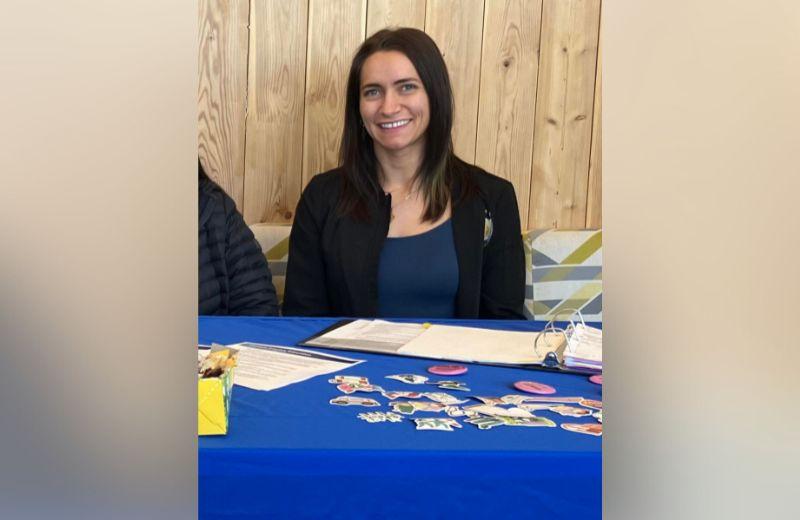National Indigenous Nurses Day falls on the first day of National Nursing Week (May 12-18) this year. The theme of Nursing Week is The power of nurses to transform health, which recognizes the tremendous impact nurses have on individuals, communities, and the future of health care.
Today we are highlighting Maggie Kotowich, a Student Practice Education Clinical Lead working in Terrace.
Describe your own personal/professional transformation throughout your educational journey
I would describe it as surprising. Prior to starting nursing school, I had an idea where I was going to land and leverage my career. However, as I went through the nursing program, I began really seeing certain gaps within health care when it comes to cultural safety education, Indigenous cultural care inclusion, holistic care approaches, and rural Indigenous community health care access. Through my own transformation into a mother and a nurse, I realized that my passion was centered around increasing Indigenous wellness.
This passion has led me to my most recent educational highlight which is navigating the Indigenous Graduate Education in Nursing (I-GEN) program- a Master of Nursing program offered through the University of Victoria. My graduate research explores how nēhiyawēwin (Cree language) contributes to the health and wellness of Indigenous Peoples within nehiýawak kāniyāsihk (the Cree people of kāniyāsīhk) Cultural Camps. It has been eye-opening learning about how health care can create community-driven studies and initiatives, which highlight the connections between language, relationships (wāhkōhtowin), and love (sākihitowin).
How have you witnessed or contributed to the transformation of health in your community?
A highlighted example was when I helped lead a collaborative and youth community-centered LGBTQ2S+ Beyond Binary (BB) event in my community. BB provided opportunities for STI testing, immunization education, contraceptive management education, a youth guest speaker, and presentation tables from local groups (i.e. Foundry, Terrace Women’s Resource Centre, Kermode Friendship Centre, and others). Some of the feedback was so heartwarming - how the event made the attendees and their family feel safe, connected, and educated.
What motivates you to continue in the nursing profession, especially during challenging times?
During challenging times, the motivation of building a stronger future for my children and their future generations is what fuels me. I am so grateful to have my children, and I hope to inspire them to strive for their dreams of building a brighter future.
How do you see the role of nurses evolving in the next decade, particularly in the context of transforming health care?
I hope to see upcoming Indigenous nursing leaders that can help plan changes to nursing education and the health care system and start integrating Indigenous ways of knowing and doing at those fundamental levels. My further hope is that health care leaders support this integration of Indigenous ways of knowing into the future clinical practices, health policies, and educational materials. Transforming health care, for me, would be embracing the importance of Indigenous Reconciliation work into health care organizations. This could be accomplished through applying Indigenous Methodology frameworks that include respect, reciprocity, Indigenous language, etc.
Can you describe a moment when you felt that your work as a nurse made a significant impact on a patient's life?
One of my previous post-partum moms and her baby were having challenges with chest feeding. The mom was just about ready to give up entirely and move to formula because her baby was having difficulty latching. Through numerous sessions of support either in-person, over the phone, or connection with other services, she was able to completely switch to chest feeding. That mom has approached me several times in our small community and expressed her gratitude for the support that I offered to her and her family. Knowing that I helped her achieve her goal of full-time chest feeding was a success for me.
Thank you to Maggie and Indigenous nurses everywhere!
Thanks so much to Maggie for sharing her story with us! Stay tuned for more nursing stories over the next few days as we continue to celebrate National Nursing Week.














Comments